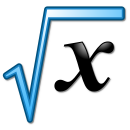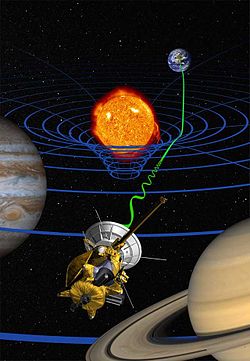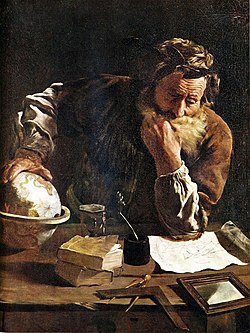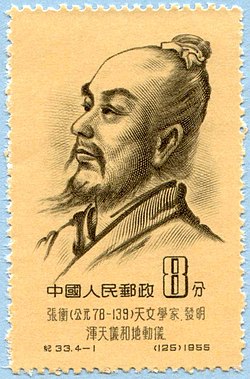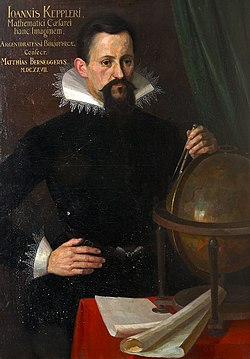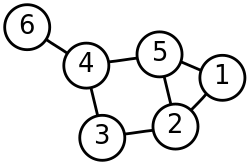Portal:Mathematics
The Mathematics Portal
Mathematics is the study of representing and reasoning about abstract objects (such as numbers, points, spaces, sets, structures, and games). Mathematics is used throughout the world as an essential tool in many fields, including natural science, engineering, medicine, and the social sciences. Applied mathematics, the branch of mathematics concerned with application of mathematical knowledge to other fields, inspires and makes use of new mathematical discoveries and sometimes leads to the development of entirely new mathematical disciplines, such as statistics and game theory. Mathematicians also engage in pure mathematics, or mathematics for its own sake, without having any application in mind. There is no clear line separating pure and applied mathematics, and practical applications for what began as pure mathematics are often discovered. (Full article...)
Featured articles –
Selected image –

Good articles –
Did you know (auto-generated) –

- ... that Fairleigh Dickinson's upset victory over Purdue was the biggest upset in terms of point spread in NCAA tournament history, with Purdue being a 23+1⁄2-point favorite?
- ... that the British National Hospital Service Reserve trained volunteers to carry out first aid in the aftermath of a nuclear or chemical attack?
- ... that Kit Nascimento, a spokesperson for the government of Guyana during the aftermath of Jonestown, disagrees with current proposals to open the former Jonestown site as a tourist attraction?
- ... that Fathimath Dheema Ali is the first Olympic qualifier from the Maldives?
- ... that Hong Wang's latest paper claims to have resolved the Kakeya conjecture, described as "one of the most sought-after open problems in geometric measure theory", in three dimensions?
- ... that people in Madagascar perform algebra on tree seeds in order to tell the future?
- ... that Latvian-Soviet artist Karlis Johansons exhibited a skeletal tensegrity form of the Schönhardt polyhedron seven years before Erich Schönhardt's 1928 paper on its mathematics?
- ... that the word algebra is derived from an Arabic term for the surgical treatment of bonesetting?
More did you know –

- ...that a ball can be cut up and reassembled into two balls, each the same size as the original (Banach-Tarski paradox)?
- ...that it is impossible to devise a single formula involving only polynomials and radicals for solving an arbitrary quintic equation?
- ...that Euler found 59 more amicable numbers while for 2000 years, only 3 pairs had been found before him?
- ...that you cannot knot strings in 4 dimensions, but you can knot 2-dimensional surfaces, such as spheres?
- ...that there are 6 unsolved mathematics problems whose solutions will earn you one million US dollars each?
- ...that there are different sizes of infinite sets in set theory? More precisely, not all infinite cardinal numbers are equal?
- ...that every natural number can be written as the sum of four squares?
Selected article –
Euclidean geometry is a mathematical system attributed to the Greek mathematician Euclid of Alexandria. Euclid's text Elements was the first systematic discussion of geometry. It has been one of the most influential books in history, as much for its method as for its mathematical content. The method consists of assuming a small set of intuitively appealing axioms, and then proving many other propositions (theorems) from those axioms. Although many of Euclid's results had been stated by earlier Greek mathematicians, Euclid was the first to show how these propositions could fit together into a comprehensive deductive and logical system.
The Elements begin with plane geometry, still often taught in secondary school as the first axiomatic system and the first examples of formal proof. The Elements goes on to the solid geometry of three dimensions, and Euclidean geometry was subsequently extended to any finite number of dimensions. Much of the Elements states results of what is now called number theory, proved using geometrical methods.
For over two thousand years, the adjective "Euclidean" was unnecessary because no other sort of geometry had been conceived. Euclid's axioms seemed so intuitively obvious that any theorem proved from them was deemed true in an absolute sense. Today, however, many other self-consistent geometries are known, the first ones having been discovered in the early 19th century. It also is no longer taken for granted that Euclidean geometry describes physical space. An implication of Einstein's theory of general relativity is that Euclidean geometry is only a good approximation to the properties of physical space if the gravitational field is not too strong. (Full article...)
| View all selected articles |
Subcategories

Algebra | Arithmetic | Analysis | Complex analysis | Applied mathematics | Calculus | Category theory | Chaos theory | Combinatorics | Dynamical systems | Fractals | Game theory | Geometry | Algebraic geometry | Graph theory | Group theory | Linear algebra | Mathematical logic | Model theory | Multi-dimensional geometry | Number theory | Numerical analysis | Optimization | Order theory | Probability and statistics | Set theory | Statistics | Topology | Algebraic topology | Trigonometry | Linear programming
Mathematics | History of mathematics | Mathematicians | Awards | Education | Literature | Notation | Organizations | Theorems | Proofs | Unsolved problems
Topics in mathematics
| General | Foundations | Number theory | Discrete mathematics |
|---|---|---|---|
| |||
| Algebra | Analysis | Geometry and topology | Applied mathematics |
Index of mathematics articles
| ARTICLE INDEX: | |
| MATHEMATICIANS: |
Related portals
WikiProjects
![]() The Mathematics WikiProject is the center for mathematics-related editing on Wikipedia. Join the discussion on the project's talk page.
The Mathematics WikiProject is the center for mathematics-related editing on Wikipedia. Join the discussion on the project's talk page.
In other Wikimedia projects
The following Wikimedia Foundation sister projects provide more on this subject:
-
Commons
Free media repository -
Wikibooks
Free textbooks and manuals -
Wikidata
Free knowledge base -
Wikinews
Free-content news -
Wikiquote
Collection of quotations -
Wikisource
Free-content library -
Wikiversity
Free learning tools -
Wiktionary
Dictionary and thesaurus
More portals
- ^ Coxeter et al. (1999), p. 30–31; Wenninger (1971), p. 65.

